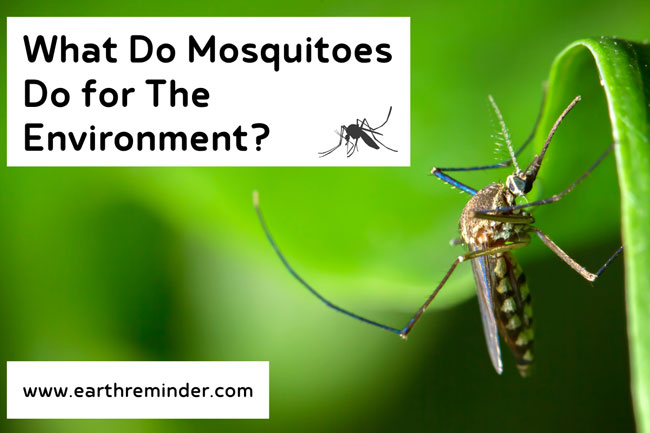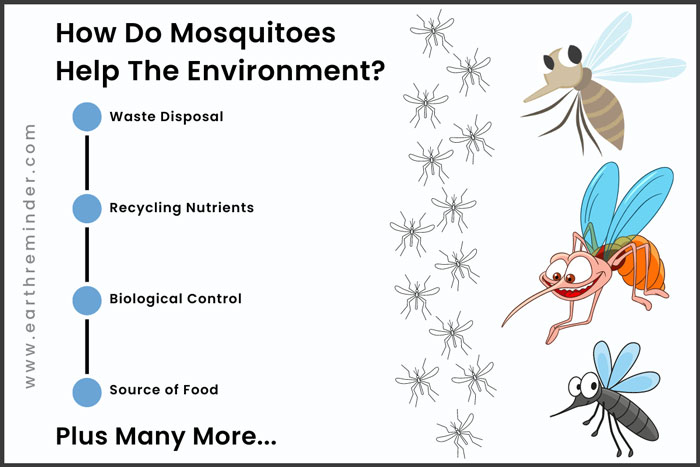What Do Mosquitoes Do For The Environment?
Mosquitoes are usually considered unwelcome and irritating because of their itchy bites and the diseases that they transmit. Even so, these annoying creatures play an important role in our ecosystem. It’s true! Without mosquitoes, our world would look very different. In fact, mosquitoes play an important role in our natural surroundings that is often ignored. Here, we’ll learn what mosquitoes do for the environment and how they help ecosystems thrive.
We’ve all had this experience in our day-to-day lives: It’s late at night, and as we start to nod off, we believe we hear anything nearby. When the sound gets louder, we realize it’s a small insect buzzing as it flies toward us. We see a small insect with needle-like mouthparts. It wakes us up and we swat it. It’s possible that our skin is feeling itchy right now because we forgot to protect ourselves. This experience might make us question the value of insects.
Table of Contents
Do Mosquitoes Help the Environment?
Yes, mosquitoes help the environment. Mosquitoes have been part of the Earth’s healthy ecosystem for more than 100 million years. Due to their indispensable and integral role in the ecology of the planet, their removal may have harmful effects on the organisms that rely on them.
Consequently, as they are regarded as biological control agents, mosquitoes regulate insect populations. Moreover, mosquitoes pollinate flowers and provide food to larger creatures like birds. Also, fish, frogs, as well as birds that consume water insects eat mosquito larvae.
It’s unbelievable, but pollinators include mosquitoes. In actuality, mosquitoes prefer to feed on flower nectar rather than human blood. Similar to how bees or butterflies do it, mosquitoes disperse pollen as they consume nectar from one blossom to another. This fertilization assists plants in both reproduction and seed production.
Also Read: What Do Ants Do for The Environment?
How Do Mosquitoes Help the Environment?
Mosquitoes have an unpleasant reputation, but they serve a purpose. Ideally, these blood-sucking creatures inflict discomfort and itching. In the worst-case scenario, they spread deadly diseases.
Mosquitoes don’t just cause harm, they’re good for the environment. There are more than 3,500 known species of mosquitoes, and only 6% of these species (females mosquitoes) bite humans. Mosquitoes play an important role in the environment for the following reasons.
Waste Disposal
Mosquito larvae can eat almost anything. At this stage of their life cycle, mosquitoes live in water or damp soil and consume food continuously. When mosquitoes are larvae, they have a voracious appetite and can feed on a variety of different foods. Their diet consists of microorganisms such as fungi, algae, and parasites. They transform food into frass, or manure, which is then used as a nutrient-rich plant food source.
Recycling Nutrients
Mosquito larvae and adults contribute to the recycling of nutrients in the environment. They feed on organic matter and help break it down, which makes it available to other organisms.
As an example, they feed on the blood of humans or animals when they bite them, thereby providing them with nutrients. In turn, mosquitoes pass these nutrients on to other animals when they are eaten. Also, when mosquitoes die, they decompose and release nutrients into the environment, which helps to enrich the soil. As nutrients are constantly replenished, this cycle keeps ecosystems healthy. Without them, the food chain would’ve broken.
Biological Control
In some cases, mosquitoes can help control the population of other insects. For example, some species of mosquitoes feed on the larvae of other mosquitoes or the larvae of other insects considered pests. The presence of these insects prevents other insects from becoming overpopulated, thereby preventing an imbalance in the local ecosystem. Also, it helps to maintain the delicate balance of nature by allowing other species to grow and prosper.
Also Read: How Does Energy Flow Through an Ecosystem?
Keeping Species Away
Humans need a home to call their own, but some places are unsuitable for them because of mosquitoes. Usually, animals also stay away from swarming mosquitoes. In turn, this protects ecosystems like the Arctic tundra and rainforests, in which biodiversity is essential. Many portions of the tropical rainforest are uncomfortable to visit because of the number of mosquitoes there. As a result, plants over there are able to survive and grow.
Source of Food
Fish, birds, frogs, and other animals depend on mosquitoes as a regular and vital food source. For example, numerous fish and birds acquired hunting strategies that it particularly made to find and catch mosquitoes as they grew along the mosquito. In fact, many species wouldn’t survive without mosquitoes. Despite being a nuisance to us, they benefit the environment enormously.
Also Read: What Do Cockroaches Do for The Environment?
Conclusion
As you can see, mosquitoes do a lot for the environment. Although frequently viewed as pests because of their capacity to transmit disease, mosquitoes have a place in our ecology. Several species, including birds, bats, fish, as well as other insects, rely on them as a food source.
Additionally, they can help pollinate plants when they feed on their nectar. Mosquito larvae also contribute to aquatic ecosystems by serving as a food source for fish and other aquatic animals and helping break down organic matter in water.
Furthermore, mosquitoes have been studied for their potential as bio-indicators, as changes in their populations can indicate changes in environmental conditions. While mosquitoes may not be beloved by humans, they have a place in our environment and play important roles in various ecological processes.

